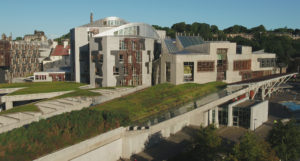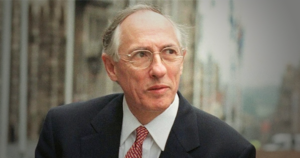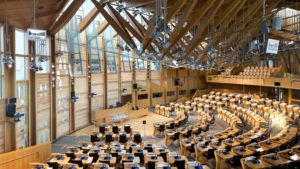The local elections provide a moment to rethink who has power. Though we’ll probably just forget all about it after May 5th.
This week, two excellent articles on ScotlandCan by academic Kate McLoughlin and local government leader Paul O’Brien have made compelling arguments for more powers to pushed downwards and out of London and Edinburgh.
It’s a view supported by former International Development Secretary Rory Stewart who, on the equally excellent “The Rest is Politics” podcast which he records along with Alastair Campbell, said this week that “pushing power down to the most local level in Scotland would be transformational.”
They follow a compelling recent article by academic Professor James Mitchell in the Scottish Left Review who declared that, for all the talk of devolution and a new European style of governance, the situation in Scotland was now “worse than councillors in the 1970s had feared”. Despite warm words when the SNP Government came to power, “micro-management” soon returned, he noted. “Not only were grants cut but authorities were prevented from raising revenue and how money was spent was increasingly determined by the Scottish Government.” The result, he declared, was that Scotland’s polity now “looks as insularly British with a Holyrood cherry on top”.
He concluded:
“How we constitute ourselves is one of the most basic, if multi-faceted, issues in politics. It has to be about more than creating a Parliament and accumulating power for the executive in the Parliament’s name. We have lost sight of the ideals of self-government that animated earlier debates and stuck with a Scottish variant on the system that was supposed to be rejected. For all the talk of popular sovereignty, what has emerged is a mini-Westminster in which the executive is dominant, Parliament is compliant and any other potential sources of legitimacy are denuded of authority. The central paradox of Scottish politics has been that in the desire to find an alternative system we have ended up with a system of government that is essentially the same as the Westminster system.”
Everybody cares about local matters: when my colleague Ross Newton took a video camera around Shettleston last week, he found strong views on the priorities for their neighbourhood from filling in potholes to culling squirrels. Yet if previous local elections are anything to go by, fewer than half of us will bother turning out to vote for local politicians on May 5th when we go to the polls. And then we’ll probably all forget about local government for five years, save to complain that our bins aren’t being emptied frequently enough.
If only to restore interest in local democracy therefore, Scotland would benefit from a renewed debate about where power lies and how services are best delivered. On the one hand, centralisation can bring benefits. The reforms to the Scottish police service, for example, are quietly becoming a success story. Centralisation has helped specialist police services, with expertise from across Scotland now gathered under one roof. Perhaps the new National Care Service will similarly show the benefits of a specialised, well-managed central command. Meanwhile, for all that localism has its supporters, I can also hear old governing hands noting quietly that it is all very well as a principle but that, in practice, it puts control in the hands of poorly run and inefficient councils who will usually screw up.
Yet there is a self-fulfilling problem with this argument: if you starve local councils of powers and funds, turn down calls to create directly elected provosts, centralise everything, and pay peanuts for local councillors, no wonder local government is going to be a hollowed-out husk. Which ambitious young civil servant or budding politician is going to want to run a branch office of Edinburgh?
Meanwhile, there are those who would say the problem with local government In Scotland Is that it’s not local enough. A report by the Jimmy Reid Foundation a few years ago, entitled “the Silent Crisis” noted that “we have the fewest councils, the fewest councillors, the largest constituencies (even including somewhere as sparsely populated as Norway or Finland), the highest ratio between the population and councillors, the lowest proportion of the population engaged in local politics, the least competitive elections and (barring England and even with the distorting effect of dual elections) the lowest turnout. There is no indicator this report was able to identify which does not suggest that Scotland is Europe’s least democratic nation at the local level.”
Perhaps the the way forward is both to centralise and to localise at the same time. When it comes to specialist and strategic services, maybe more centralisation is what’s needed. For example, if I get properly sick, I don’t want to be seen in a middling sized hospital in a small town, I want to go a teaching hospital in a big city where world leading experts can treat me. That’s an argument for shutting mid-sized units, investing more in specialised centres, and asking people to travel a little further for better treatment. – a conversation politicians have shied away from for obvious reasons. At the same time, perhaps more control and power needs to be driven down more locally – for example, by giving schools more control over their budgets, and by handing villages and towns more control over tax raising and spending on the things that matter to them locally. People need to feel they are in control. Without feeling in charge of their lives, productivity is going to continue to dawdle along.
What’s clear is that the current system – marked by resentment over centralisation, impotent local government, and communities without agency – could be done a lot, lot better.






